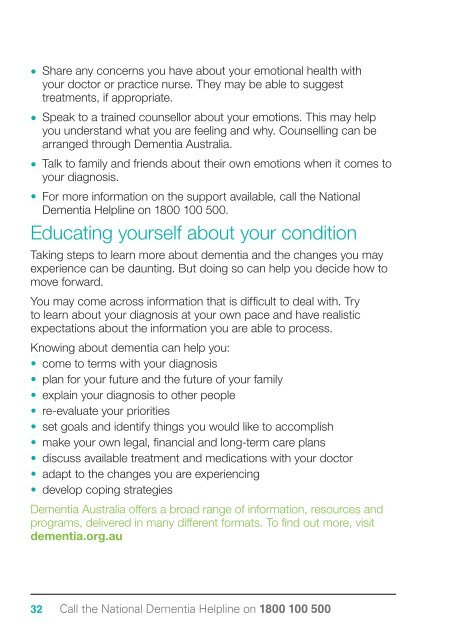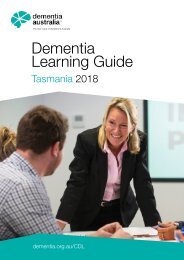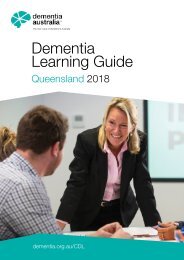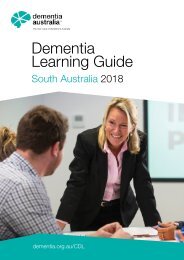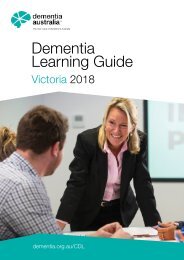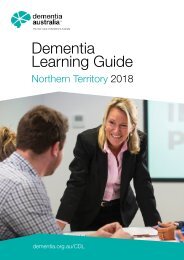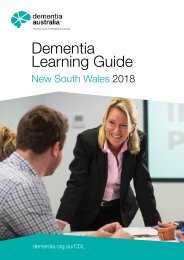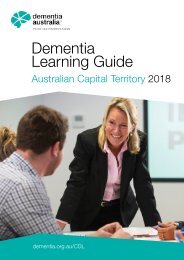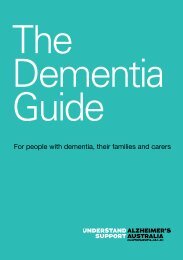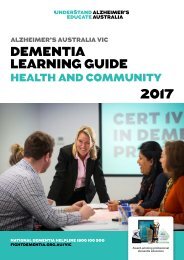Dementia Australia | The Dementia Guide
The Guide will also be used by the family and friends of someone with dementia, as it will contain information for anyone taking on a caring role. It will help people to understand more about dementia and the emotional impact of a diagnosis, the available drug treatments, and support and services that are available. It will include information about living well with dementia and about making plans for the future.
The Guide will also be used by the family and friends of someone with dementia, as it will contain information for anyone taking on a caring role. It will help people to understand more about dementia and the emotional impact of a diagnosis, the available drug treatments, and support and services that are available. It will include information about living well with dementia and about making plans for the future.
Create successful ePaper yourself
Turn your PDF publications into a flip-book with our unique Google optimized e-Paper software.
• Share any concerns you have about your emotional health with<br />
your doctor or practice nurse. <strong>The</strong>y may be able to suggest<br />
treatments, if appropriate.<br />
• Speak to a trained counsellor about your emotions. This may help<br />
you understand what you are feeling and why. Counselling can be<br />
arranged through <strong>Dementia</strong> <strong>Australia</strong>.<br />
• Talk to family and friends about their own emotions when it comes to<br />
your diagnosis.<br />
• For more information on the support available, call the National<br />
<strong>Dementia</strong> Helpline on 1800 100 500.<br />
Educating yourself about your condition<br />
Taking steps to learn more about dementia and the changes you may<br />
experience can be daunting. But doing so can help you decide how to<br />
move forward.<br />
You may come across information that is difficult to deal with. Try<br />
to learn about your diagnosis at your own pace and have realistic<br />
expectations about the information you are able to process.<br />
Knowing about dementia can help you:<br />
• come to terms with your diagnosis<br />
• plan for your future and the future of your family<br />
• explain your diagnosis to other people<br />
• re-evaluate your priorities<br />
• set goals and identify things you would like to accomplish<br />
• make your own legal, financial and long-term care plans<br />
• discuss available treatment and medications with your doctor<br />
• adapt to the changes you are experiencing<br />
• develop coping strategies<br />
<strong>Dementia</strong> <strong>Australia</strong> offers a broad range of information, resources and<br />
programs, delivered in many different formats. To find out more, visit<br />
dementia.org.au<br />
32 Call the National <strong>Dementia</strong> Helpline on 1800 100 500


